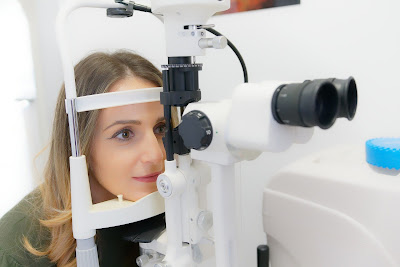*This is a collaborative post*
We all love travelling. Those moments in time allow us to enjoy some moments of relaxation. But did you know that as travellers, we often put our eyes in danger? Our constant presence in the sun, the risks of infections, and our continuous fatigue can create some crucial complications in our vision. That is why it is not uncommon in our daily lives to wonder why and when we should visit the ophthalmologist.
Sometimes, we feel a simple blur, or we have a little headache, or our eyes get a little tingling. Such symptoms are very likely to be considered normal and are often the result of fatigue or poor working conditions (e.g. dust, humidity). But there is also the possibility that it is something more complex than only an ophthalmologist can accurately assess and guide accordingly to solve any possible problem that may exist. In any case, we should look into our eyes quite often as travellers, and the following four reasons prove this:
1. Eye injury/accidents
An accident usually means something has entered the eye, but an injury or burn affecting the eye area is also worth checking out with an ophthalmologist. Serious injuries can cause swelling, redness, sensitivity to light, double vision or pain.
Without proper treatment, eye injuries can lead to partial or even permanent loss of vision. After any eye injury, apply a cold compress without putting pressure on the eye to reduce pain and swelling.
If you cut or pierce the eye or eyelid, do not rinse the eye and never attempt to remove an object that penetrates the eye. Cover your eye with a stiff shield, such as the bottom half of a paper cup, and see a doctor right away. Aris Konstantopoulos of Aris Vision Correct clinic is a great choice, especially for people who live in London’s broad area.
2. Significant changes in your vision
A sudden or noticeable change in the quality of your vision needs to be addressed quickly. Vision changes often indicate a retinal or corneal defect that can cause permanent vision loss if left untreated.
One such defect is the detachment of the retina. If you see flashing lights and spots, you may have a detached retina. Vision changes can be a symptom of a stroke, nerve damage or other neurological problems.
In combination with blurred vision, Temple pain, headache, post-chewing pain, hip pain and fever may indicate temporal arteritis. This severe condition causes inflammation or damage to the arteries that supply blood to the head and brain. Swelling of the cornea or infection can also cause sudden loss of vision.
3. Red-eye
If you have red eyes accompanied by secretions, you should examine them as soon as possible. For example, conjunctivitis (pink eye) is quite common in young children and is often viral and contagious.
About 80% of acute infectious pink eyes are viral. It is vital to deal with it early. Whenever possible, a vision specialist should evaluate the redness of the eyes who can differentiate the type of conjunctivitis and prescribe appropriate treatment.
4. Headaches, glaucoma and family history
A very special case was that of a 53-year-old woman who felt pressure and chronic mild headaches on her forehead. He always had good eyesight and was never examined by an ophthalmologist.
This woman's visual fields showed advanced glaucoma damage, which is not reversible. She initially denied any family history of glaucoma, but when she spoke to her parents, she learned that they were both being treated for glaucoma and had never told their children.
This is more than a warning story about neglecting your eye symptoms. It is also a lesson in the importance of discussing medical issues with the family. Find out the details of your family history. Talk to your parents about this frequently and get regular eye exams. When such cases are detected early, they are treatable, and vision loss is minimized.




